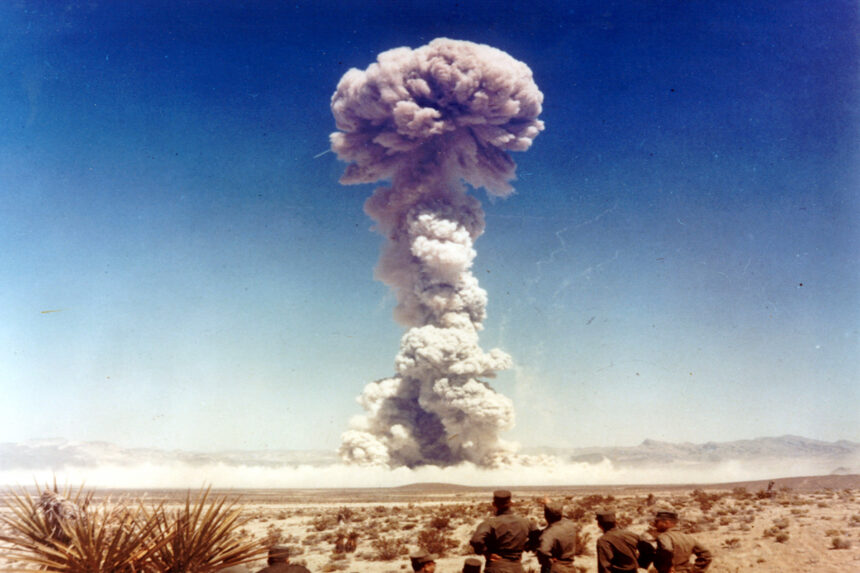Russia is on the verge of resuming nuclear weapons testing after that country’s lawmakers on Tuesday voted to revoke the ratification of a Comprehensive Nuclear Test Ban Treaty. Namibia approved the treaty in June 2001 by depositing its instrument of ratification of the Comprehensive Nuclear-Test-Ban Treaty (CTBT) with the Secretary-General of the United Nations.
In response to Russia’s latest move, executive secretary of the Comprehensive Nuclear-Test-Ban Treaty Organisation (CTBTO), Robert Floyd, called it “very disappointing and deeply regrettable”.
“This decision goes against renewed
global determination to see the CTBT enter into force. The mission to end nuclear testing enjoys near-universal support. In the last two years, nine additional states have signed or ratified the CTBT, bringing the total number of signatures to 187 and ratifications to 178. I am confident this strong momentum will continue,” Floyd stated.
He added that the Russian Federation stated revoking its ratification does not mean it is withdrawing from the CTBT and that it remains committed to the Treaty, including the operation of all CTBTO monitoring stations on its territory, and the sharing of that data with all states. Also, the Russian Federation has indicated it will remain a member of the CTBTO Preparatory Commission, with the same obligations and rights as all other States Signatories.
“I continue to join the international community in calling on all states that have not ratified the Treaty, particularly those whose ratification is required for entry into force, to do so without delay. This global community will not change course. We remain deeply committed to the mission of achieving a world without nuclear testing, a mission which is more important now than ever,” Floyd stated.
The CTBT bans all nuclear explosions everywhere, by everyone, and for all time.
To enter into force, the treaty must be ratified by all 44 States listed in Annex 2, for which eight ratifications are still required.
The CTBT also established an International Monitoring System (IMS) to ensure no nuclear explosion goes undetected. Currently, 305 certified facilities – of a total of 337 when complete – are operating around the world, using four main technologies, namely seismic, hydroacoustic, infrasound and radionuclide.
The data registered by the IMS has also been used for disaster mitigation such as earthquake monitoring and tsunami warning, as well as research into fields as diverse as whale migration, climate change, and the prediction of monsoon rains.
Last week’s decision by Russia’s State Duma, that country’s lower house of parliament, to pass a law revoking ratification of the CTBT came after President Vladimir Putin earlier noted he was “not ready to say” whether Russia needed to carry out live nuclear tests.
The CTBT never came into force because it was not ratified by all required signatories. However, the treaty has managed to put an end to more than 2 000 nuclear tests carried out during and after the Cold War. While Russia and the United States signed the treaty in 1996, only Moscow ratified it in 2000, as the US never took final steps of signing it into law.
Meanwhile, last week Russia’s State Duma unanimously approved the de-ratification bill in its first reading, with 412 voting for and none voting against. This means the bill revoking nuclear weapons’ testing can be signed into law by Putin after passing three readings in the lower house and after approval in the upper house, which is largely described as a mere formality.
“For 23 years, we have been waiting for the United States to ratify this treaty. But Washington, because of its double standards, its irresponsible attitude to global security issues, has not done so,” Russian lawmaker Vyacheslav Volodin told international news agencies.
In February this year, Russia pulled out of a separate nuclear treaty with the United States known as New START, which aimed to limit the number of nuclear warheads both sides could deploy.
Russia’s deputy foreign minister, Sergei Ryabkov said Moscow would only resume nuclear tests if the United States did so first.
The Soviet Union last carried out a nuclear test in 1990, while the United States’ last test was in 1992. – ebrandt@nepc.com.na



